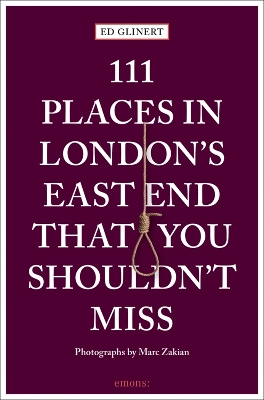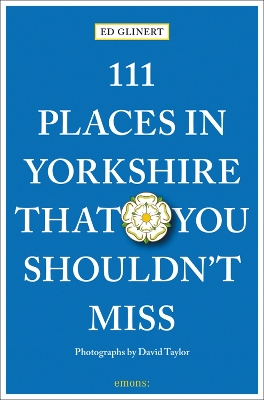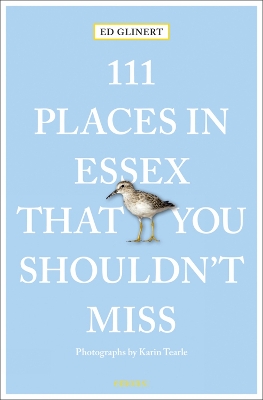111 Places/Shops
3 total works
Mediaeval no-go zone, Victorian hell-hole, war-ravaged bomb site, 21st century shining city, the most exciting area in one of the most exciting cities in the world - the East End has often been London's strange alter ego. Ed Glinert trawls through the strange stories, the crazed characters, the violent vignettes, the dried-up docks, the imaginative immigrants, the proud philanthropists to give a different history of the most misunderstood sector of the capital, from the Princes in the Tower to the Ratcliffe Highway murders; from Jack the Ripper to the Kray twins; the Jewish ghetto to Banglatown; Cable Street to Canary Wharf; Mahatma Gandhi to George Orwell.
But when people think of Yorkshire they also think of the unusual and the unsung: Bettys delightful tea rooms, cricket at Scarborough, the windswept steps of Whitby Abbey, the steam railway of the Railway Children, Mother Shipton’s Cave, and racing at Doncaster and York.
Yorkshire has also given birth to some of the greatest and most talented figures in English history: Brian Clough, Harold Wilson, John Wycliffe, William Wilberforce, the Brontë Sisters, David Hockney and Barbara Hepworth.
“Good evening. I’m from Essex, in case you couldn’t tell.” Thus spoke the inimitable punk poet of the flat lands, Ian Dury, in 1977. Few other parts of England have so distinctive an identity, sent up by a hundred comedians since the 1990 birth of Essex Man, epitomised by the rise of the ‘Mockney’ radio celeb, and incarcerated through their hideous offspring in TV’s The Only Way is Essex. It’s not just an accent, it’s a way of life, a culture shaped by the Diaspora from London generation after generation, the lure of the sea and powerful Thames estuary, the encroaching of the waters from innumerable creeks and inlets, the dream seaside resort of Southend, the longing for the most succulent of seafood indulgences, the delicious countryside of copses and boughs painted by Constable, but also the threat of invasion by hostile forces repelled by Britain’s most formidable forts. It’s Essex. You can tell.


